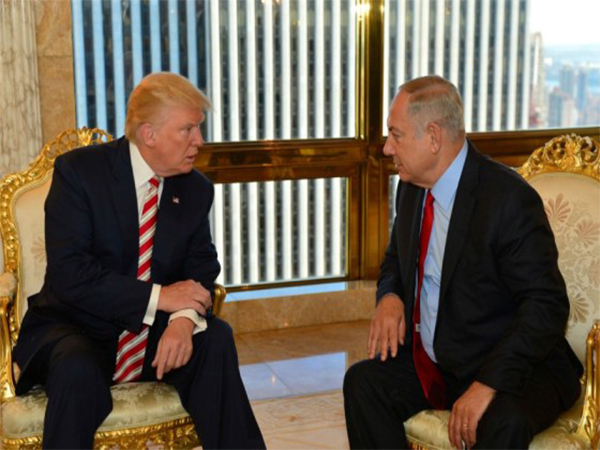Trump's Indirect Nod to Netanyahu's Controversial Gaza Plan Stirs Global Reactions
President Trump supports Israel's Gaza takeover plan, amid widespread international criticism. Netanyahu aims to remove Hamas and establish peaceful governance, but faces domestic division and global isolation. A ceasefire proposal is in the works, while public opinion on U.S. support is divided amid humanitarian concerns.

- Country:
- United States
US President Donald Trump has shown indirect support for Israeli Prime Minister Benjamin Netanyahu's contentious plan to assert control over the Gaza Strip, according to The Hill. Despite intensifying global criticism, Trump characterized the move as an Israeli decision, while committing the U.S. to lead humanitarian aid efforts in the embattled region.
Netanyahu's strategy, approved by Israel's security Cabinet, has driven a wedge domestically and left Israel increasingly isolated from European, Arab, and Gulf nations. Germany has halted military exports destined for Gaza, aligning with France, Canada, and the UK's similar actions. The UK has further called for an emergency meeting of the UN Security Council, while U.S. Vice President Vance acknowledged both differences and common objectives with the UK's Foreign Minister.
Facing mounting international criticism, Netanyahu asserted the plan's intent to liberate Gaza from Hamas, rather than occupying it. He aims to establish an independent civilian administration, ensuring hostage safety and warding off future threats. Yet, Israeli military chief Eyal Zamir cautioned the Cabinet of potential risks to hostages amid the occupation.
The Israeli populace remains divided. Questions loom over whether the operation can dismantle Hamas's grip or guarantee hostages' freedom. The opposition condemns the Cabinet's decision, while bipartisan U.S. support for Israel shows signs of strain. Influential figures like Rep. Marjorie Taylor Greene and Sen. Bernie Sanders express concerns over humanitarian costs, calling for action against arms sales.
Saudi Arabia has denounced Netanyahu's plan, citing accusations of severe human rights abuses. Meanwhile, diplomats from Egypt and Qatar, alongside the U.S., are reportedly crafting a ceasefire initiative involving hostages' release under Israeli withdrawal, signaling potential diplomatic resolutions.
Will Todman from the Center for Strategic and International Studies highlights the dangers of a prolonged Israeli occupation without a clear exit strategy, warning that Israel might proceed unless the U.S. alters its stance.
(With inputs from agencies.)
ALSO READ
Diplomatic Push for Peace: US Efforts in Southeast Asia
From Imitator to Innovator: China's Cool Factor Revolutionizes Global Tech and Business
Diplomatic Push in Southeast Asia: U.S. Efforts to Broker Cambodia-Thailand Peace
High-Stakes Trade Talks: US and China Negotiations Move to Stockholm
Euro Rises on U.S.-EU Trade Pact Amid Global Economic Focus










